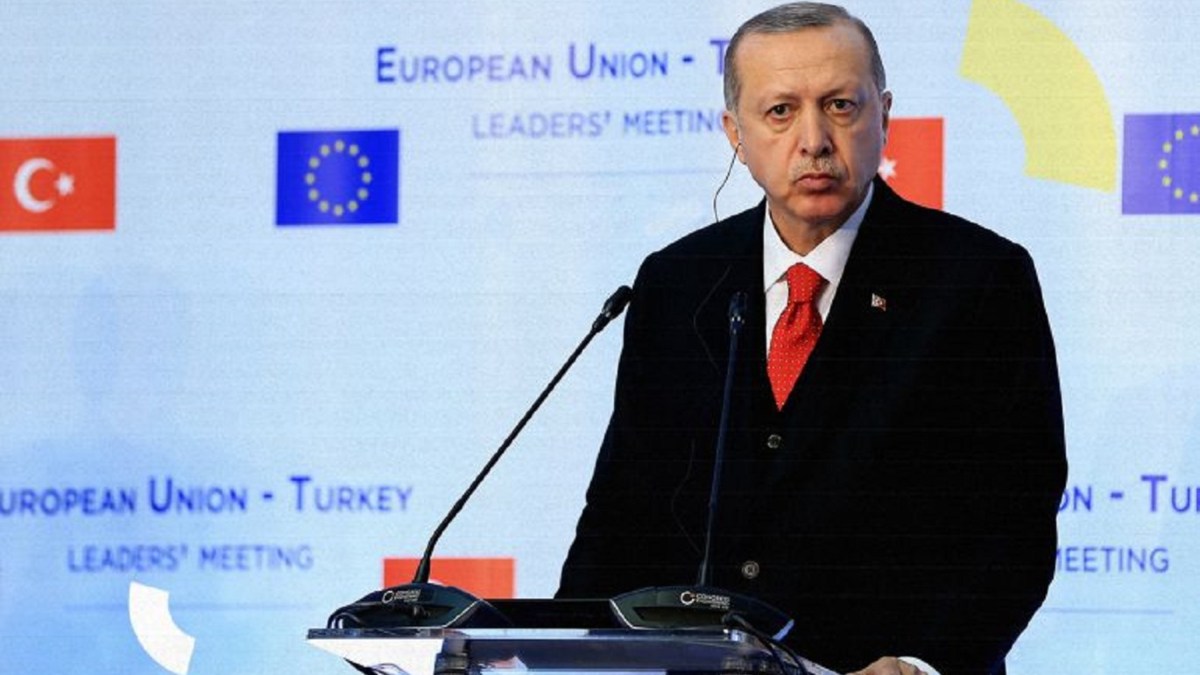Title: Turkish President Recep Tayyip Erdogan Engages in Balancing Act for European Union Accession Talks
Subtitle: Turkey’s efforts to resume accession talks with the EU overshadowed by negotiations on Sweden and Finland joining NATO
Weeks after securing his third term as President, Recep Tayyip Erdogan of Turkey is intensifying efforts to resume accession talks between Turkey and the European Union (EU). Taking advantage of the NATO meeting held in Lithuania in mid-July, Erdogan is negotiating with opponents and Western allies to emphasize Turkey’s crucial role in countering the “Russian risk” for Europe.
While the primary focus of the NATO summit remains resolving Ukraine’s admission to the alliance, Ukrainian President Volodymyr Zelenskiy’s presence has been overshadowed by President Erdogan’s involvement. Erdogan’s opposition to Sweden and Finland joining NATO, along with Turkey’s concerns over the relationship between the two countries and Kurdistan Workers Party (PKK), has sparked clashes.
In response to Sweden’s refusal to accept a membership application after an incident involving the burning of a Quran in front of the Turkish embassy, the Turkish Presidential Palace indefinitely postponed the tripartite mechanism meeting between Turkey, Sweden, and Finland, which was intended to discuss the conditions for their NATO membership.
Recognizing Europe’s needs and the United States‘ desire for Sweden and Finland’s accession to NATO, Turkey is leveraging its influence to demand concessions in exchange for its consent. By linking Sweden’s NATO entry with Turkey’s EU entry, Erdogan employed a tactic of seeking the impossible before pursuing more attainable goals. As a result, Sweden has pledged to drop support for the PKK, lifted its ban on arms exports to Ankara, and agreed to renew Turkey’s customs union agreement with the EU—an essential economic priority for Turkey.
Moreover, Turkey has obtained U.S. approval for the purchase and renewal of F-16 fighter jets, securing many concessions that were previously unattainable. However, Turkey remains determined to join the EU and will continue negotiating on this demand, viewing it as an additional benefit in addition to its already achieved gains.
Meanwhile, Turkey faces the challenge of affirming its ties with the West without jeopardizing its existing understandings with Russia. As tensions persist in Ukraine, Turkey maintains its neutrality to preserve its relationship with Moscow. Simultaneously, Turkey’s greenlight for Finland and Sweden to join NATO has sparked concerns within Russia, which considers them strategic threats to its influence and has demanded NATO distance itself from its border with Finland.
Although Russia has warned Turkey about the European Union’s rejection of its membership, stressing that the EU is a “purely Christian club,” diplomatic relations between Russia and Turkey have not escalated. Economic considerations, such as Russia’s reliance on Turkey as a hub for sending gas to Europe and Turkey’s robust energy needs met by importing Russian gas, prevent reckless escalation.
By engaging in this balancing act, Turkey seeks to increase its political influence through its relationship with NATO and the West. Simultaneously, NATO benefits from Turkey’s strategic depth and its ability to provide security for the western bloc from the south.
As the geopolitical landscape evolves, Erdogan’s skillful negotiation tactics and Turkey’s pivotal position between East and West will continue to shape its diplomatic efforts and ambitions in the region.
Note: This is a fictional news article and does not reflect real events or statements. The content is based on the given information.
